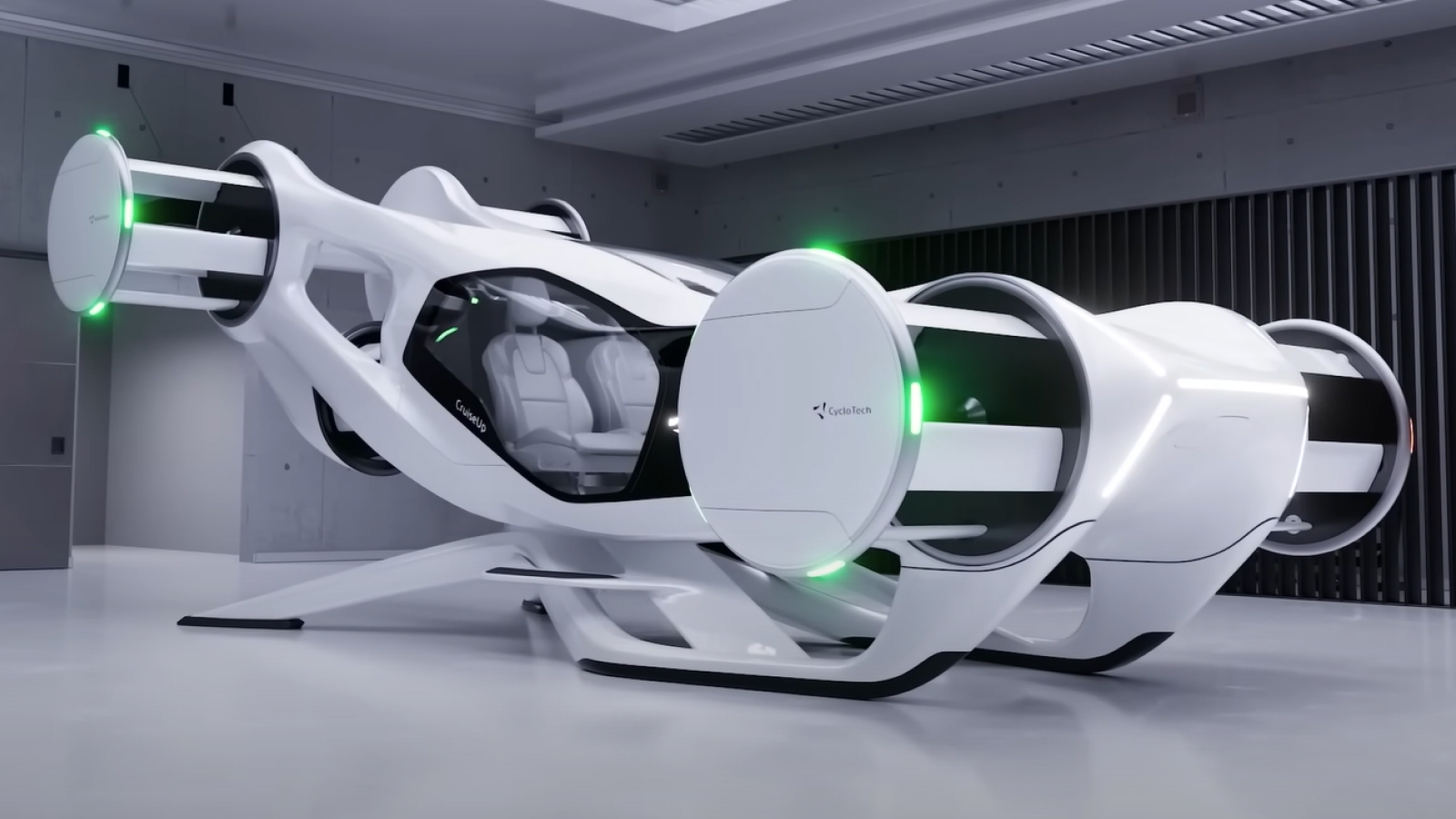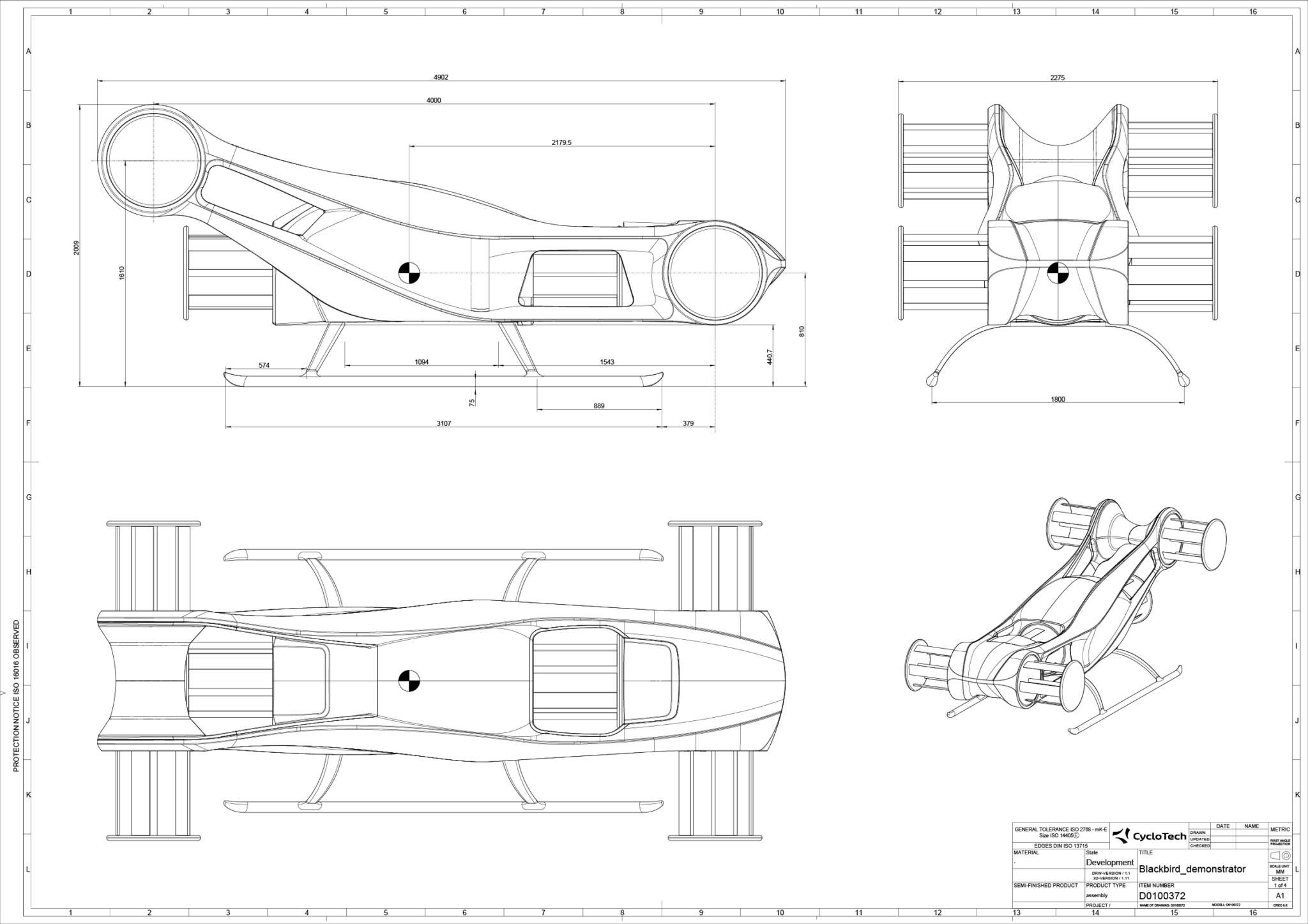Meet 'Blackbird': A flying taxi that spins and moves in any direction thanks to new propulsion system
CycloTech's all-electric flying vehicle 'Blackbird' is a blueprint for an air taxi that uses motors similar to those used for tug boats.

A new type of flying car could soon be ferrying passengers through the skies using a novel propulsion technology, engineers say.
On Nov. 5, CycloTech, an Austrian company that builds flying car components, unveiled blueprints for its new "BlackBird" demonstrator aircraft — a flying car that uses a custom-made alternative to propellers.
Dubbed the "CycloRotor," this all-electric propulsion system is based on the principle of the Voith Schneider propeller (VSP) — which is frequently used on tug boats and ferries, CycloTech chief technology officer Tahsin Kart said in a promotional video. It's a circular rotor with small propeller blades inside, which spin around and can be used for both propulsion and steering.
By moving the center around which the propeller blades spin, the aircraft can change its airspeed and direction, CycloTech representatives said in a statement. Each propeller blade can also be angled to produce directional thrust, like the wing of an aircraft, and can be precisely aligned to send the aircraft in specific directions or rotate mid-air.
The CycloRotors will greatly enhance the BlackBird demonstrator's maneuverability, enabling it to move or spin in any direction while airborne and also perform sharp corrections to its trajectory with added precision, CycloTech representatives said in the statement. This can also improve the comfort and safety of passengers on any flight in windy or other inclement weather conditions, they added.

This technology sets BlackBird apart from electric vertical takeoff and landing (eVTOL) aircraft, such as those being tested by DARPA, as well as prototype air taxis — all of which use more traditional propeller designs.
The Blackbird demonstrator is still in development, but CycloTech released several promotional videos showing the CycloRotor technology being used to levitate and propel scale models.
Breaking space news, the latest updates on rocket launches, skywatching events and more!
At present, the model can support a maximum of 750 pounds (340 kilograms) and can fly at around 73 mph (118 km/h). This is almost half that of a Skyhawk Cessna, one of the most popular private light aircraft options on the market, which can max out at 142 mph (229 km/h).
The team behind the BlackBird demonstrator aims to fly a full-size version of the aircraft in early 2025.
Rory Bathgate is a freelance writer for Live Science and Features and Multimedia Editor at ITPro, overseeing all in-depth content and case studies. A subject expert on artificial intelligence (AI), in his time at ITPro Rory has also covered a wide range of topics including cyber security, business networks, and hardware. Rory is also a full-time co-host of the ITPro Podcast alongside Jane McCallion, in which guests from the tech sector are invited to explore a topic in detail and field questions relevant to IT decision-makers.
Outside of his work for ITPro, Rory is keenly interested in how the tech world intersects with our fight against climate change. This encompasses a focus on the energy transition, particularly renewable energy generation and grid storage as well as advances in electric vehicles and the rapid growth of the electrification market.
In 2022 Rory graduated from King’s College London with an MA (Hons) in Eighteenth-Century Studies. This followed his graduation from the University of Kent with a BA (Hons) in English and American Literature. While at the University of Kent, he was heavily involved in student media and was the editor of the student newspaper, InQuire. In his free time, Rory enjoys photography, cinema and science fiction of all kinds. He can often be found at the cinema, or on long walks around London.


